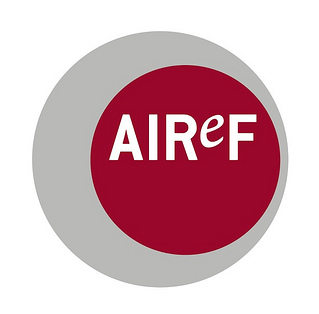
The European Court of Auditors is the supreme audit institution of the European Union (EU). It was established in 1975 in Luxembourg and is one of the seven EU institutions. The Court comprises one member from each EU member state supported by approximately 800 civil servants.

The State Auditor of North Carolina is a statewide elected office in the U.S. state of North Carolina. The state auditor is a constitutional officer responsible for overseeing and reviewing the financial accounts of all state government agencies. The auditor also conducts performance audits of state agencies, ensures state agencies' accounting conforms with Generally Accepted Accounting Principles, evaluates the integrity of computer-generated information, and investigates the misuse of state funds or property. The incumbent is Jessica Holmes, who became state auditor on Dec. 16, 2023.

Nicolae Văcăroiu is a Romanian politician, member of the Social Democratic Party (PSD), who served as Prime Minister between 1992 and 1996. Before the 1989 Revolution, he worked at the Committee for State Planning, together with Theodor Stolojan. He was the President of the Senate of Romania for almost eight years, during two legislatures.

The Stability and Growth Pact (SGP) is an agreement, among all the 27 member states of the European Union, to facilitate and maintain the stability of the Economic and Monetary Union (EMU). Based primarily on Articles 121 and 126 of the Treaty on the Functioning of the European Union, it consists of fiscal monitoring of members by the European Commission and the Council of the European Union, and the issuing of a yearly recommendation for policy actions to ensure a full compliance with the SGP also in the medium-term. If a member state breaches the SGP's outlined maximum limit for government deficit and debt, the surveillance and request for corrective action will intensify through the declaration of an Excessive Deficit Procedure (EDP); and if these corrective actions continue to remain absent after multiple warnings, the Member State can ultimately be issued economic sanctions. The pact was outlined by a resolution and two council regulations in July 1997. The first regulation "on the strengthening of the surveillance of budgetary positions and the surveillance and coordination of economic policies", known as the "preventive arm", entered into force 1 July 1998. The second regulation "on speeding up and clarifying the implementation of the excessive deficit procedure", known as the "dissuasive arm", entered into force 1 January 1999.

Alain Lamassoure is a French politician and Member of the European Parliament for the south-west of France. He was a member of Les Républicains, which is part of the European People's Party, and was the chairman of the European Parliament's Committee on Budgets from July 2009 until June 2014.

The Cour des Comptes is France's supreme audit institution, under French law an administrative court. As such, it is independent from the legislative and executive branches of the French Government. However, the 1946 and 1958 French constitutions made it the Court's duty to assist the Cabinet and Parliament in regulating government spending. The Court thus combines functions of a court of exchequer, comptroller general's office, and auditor general's office in common-law countries. It is also a Grand Corps of the French State and mainly recruits among the best-ranked students graduating from the Ecole nationale d'administration.

The Supreme Audit Office is the supreme audit institution and also one of the oldest state institutions in Poland, created under the Second Republic on February 7, 1919, barely 3 months after the restoration of Poland's independence. It was created on the initiative of the Head of State, Józef Piłsudski. Its organisation and functioning are set out in the Constitution of the Republic of Poland and the NIK Act of 23 December 1994. The NIK is subordinate to the Sejm and it acts in accordance with the principle of collegial responsibility. The NIK is headed by the President who is appointed by the Sejm for a six-year term of office. The NIK performs audits related to, primarily, the execution of the state budget as well as public finance spending and management of public property by state and local governmental bodies and economic entities. Every year, the NIK submits three key documents to the Sejm: the analysis of the state budget execution and monetary policy guidelines, the opinion on the vote of discharge for the Council of Ministers and the annual report on the NIK’s activity.

The state auditor of Minnesota is a constitutional officer in the executive branch of the U.S. state of Minnesota. Nineteen individuals have held the office of state auditor since statehood. The incumbent is Julie Blaha, a DFLer.

The New York State Comptroller is an elected constitutional officer of the U.S. state of New York and head of the New York state government's Department of Audit and Control. Sixty-one individuals have held the office of State Comptroller since statehood. The incumbent is Thomas DiNapoli, a Democrat.

State auditors are fiscal officers lodged in the executive or legislative branches of U.S. state governments who serve as external auditors, financial controllers, bookkeepers, or inspectors general of public funds. The office of state auditor may be a creature of the state constitution or one created by statutory law.

The Court of Audit of Belgium is a Belgian governmental institution established by article 180 of the Belgian Constitution. The Court of Audit is a collateral body of the Belgian Federal Parliament and exerts external control on the budgetary, accounting and financial operations of the Federal State, the Communities, the Regions, the public service institutions and the provinces. The task of the Court of Audit is defined in its organic law of 29 October 1846. This law gives the Court of Audit a large independence and a wide autonomy to perform its missions.

The Court of Auditors is the supreme governmental accounting body of Spain responsible of the comptrolling of the public accounts and the auditing of the accountancy of the political parties, in accordance with the Constitution and its Organic Act.

The Office of the Parliamentary Budget Officer is an office of the Parliament of Canada which provides independent, authoritative and non-partisan financial and economic analysis. The office is led by the Parliamentary Budget Officer, an independent officer who supports parliamentarians in carrying out their constitutional roles of scrutinizing the raising and spending of public monies and generally overseeing the government's activities.

The Office for Budget Responsibility (OBR) is a non-departmental public body funded by the UK Treasury, that the UK government established to provide independent economic forecasts and independent analysis of the public finances. It was formally created in May 2010 following the general election and was placed on a statutory footing by the Budget Responsibility and National Audit Act 2011. It is one of a growing number of official independent fiscal watchdogs around the world.

The European Union employs a variety of public accountability measures to review and reform budgets across government. As the EU's budget is at risk of maladministration, every year the Court of Auditors reports on the management of the budget. European Union auditors have stated that as they implement more transparency and double-entry book-keeping systems, it is likely to improve budget management.

The politics of France take place with the framework of a semi-presidential system determined by the French Constitution of the French Fifth Republic. The nation declares itself to be an "indivisible, secular, democratic, and social Republic". The constitution provides for a separation of powers and proclaims France's "attachment to the Rights of Man and the principles of National Sovereignty as defined by the Declaration of 1789".

The Treaty on Stability, Coordination and Governance in the Economic and Monetary Union; also referred to as TSCG, or more plainly the Fiscal Stability Treaty is an intergovernmental treaty introduced as a new stricter version of the Stability and Growth Pact, signed on 2 March 2012 by all member states of the European Union (EU), except the Czech Republic and the United Kingdom. The treaty entered into force on 1 January 2013 for the 16 states which completed ratification prior to this date. As of 3 April 2019, it had been ratified and entered into force for all 25 signatories plus Croatia, which acceded to the EU in July 2013, and the Czech Republic.

The Independent Authority for Spanish Fiscal Responsibility is an independent agency for fiscal control in Spain. It was created in 2013 by the Spanish government, on the initiative of the European Union and to implement a constitutional mandate.

The Court of Audit is an Italian Court of Audit, an institution of constitutional importance, established by Articles 100 & 103 of the Constitution of Italy, which is among the supplementary institutions of the government. The Court of Audit has consultative, review, and jurisdictional functions.
Irish Fiscal Advisory Council is a non-departmental statutory body providing independent assessments and analysis of the Irish Government's fiscal stance, its economic and budgetary forecasts, and its compliance with fiscal rules. The Fiscal Council was created as part of a wider agenda of budgetary reform after the financial crisis.


















